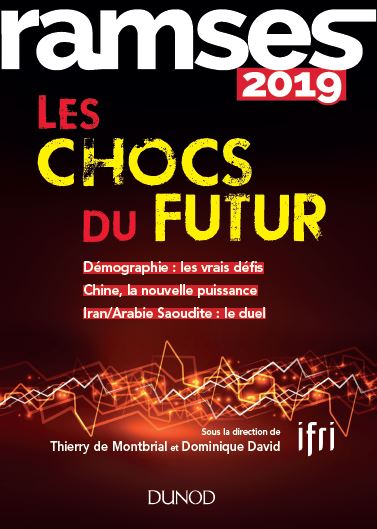German Domestic Policy
The analysis of Germany, at both the national and regional levels, is necessary to understand the contemporary issues that polarize, drive debates, and influence both political parties and the government.
Coronavirus: Franco-German solidarity put to the test
While the coronavirus health crisis is currently intensifying in Europe, it does not seem to be affecting France and Germany at the same pace or with the same intensity. The crisis is putting both countries' respective hospital systems to the test in different ways. France and Germany's economies are being mobilized, and social cohesion is enhanced. The crisis also impacting Franco-German and European solidarity.
Alternative for Germany (AfD): An Extreme Right-Wing Party?
The AfD - Alternative for Germany - was founded in 2013 to protest the Euro rescue policy. Originally conservative-liberal, but to the right of the CDU/CSU, the party presented itself after 2015 as the main opponent to Angela Merkel's migration policy. It subsequently achieved electoral success, including its entry into the Bundestag in 2017.
The Right-wing Extremism in Germany. An Underestimated Threat?
In 2018, the Federal Office for the Protection of the Constitution classified 24,100 people in Germany as right-wing extremists. More than one out of two right-wing extremists is described as “violence-oriented”. These figures demonstrate the high level of threat in the German constitutional democracy, which has already manifested itself in the form of various terrorist attacks against foreigners, religious communities and more recently politicians.
30 ans après la chute du Mur. Une Allemagne unifiée, une population désunie
Thirty years after the fall of the Berlin Wall, celebrations have taken a disappointing turn. The electoral successes of the far-right German party AfD (Alternative for Germany (in German: Alternative für Deutschland)) in Saxony, Brandenburg and Thuringia in September and October 2019 reflect growing unease and discontent in the new Länder faced with mitigated outcomes of the unification.
Where Is the SPD Going? The German Social Democrats and the Way out of Crisis
Whether we think of France, Greece, the Netherlands, Poland, Austria or Germany, the social democratic or socialist parties in Europe are losing ground or even facing dissolution. Ironically, the crisis of the Social Democratic Party of Germany (SPD) began with the resounding victory of Gerhard Schröder in 1998.

The Wider Context: Germany's Baltic Engagement, the ‘Munich Consensus’ and the Future of European Security

RAMSES 2019. The Clashes of the Future
RAMSES 2019. The Clashes of the Future, written by Ifri's research team and external experts, offers an in-depth and up-to-date analysis of global geopolitics.
Between political crisis and European recovery attempt: German interrogations
Even though the CDU-CSU led Grand Coalition was renewed following the German legislative elections of 24 September 2017, and even though Angela Merkel was re-elected chancellor a fourth consecutive term, the country has entered a period of growing political uncertainty. The formation of a new government took much longer than after previous elections for a number of different reasons: after negotiations, the liberal party refused to join a coalition with the CDU-CSU and the Green party, the SPD was reluctant to continue in government, and, above all, the internal divisions of the two sister parties CDU et CSU, that nearly caused the fall of the new government three months after its investiture.
Dual system of professional training: keystone of "made in Germany"?
The German dual system of professional training is seen as an international reference model. It aims at training qualified employees for an innovative economy rather than being the last resort for less able pupils. Parents and adolescents regard apprenticeships as an entry ticket to a good job with career opportunities; companies value the advantages of practice-oriented training in situ conceived in cooperation with its own professionals as this spares them the costs of integrating school graduates.
German Elections: the Day after Tomorrow
Angela Merkel is gaining thanks to her international standing and the weakness of her Social-Democrat opponent.
Support independent French research
Ifri, a foundation recognized as being of public utility, relies largely on private donors – companies and individuals – to guarantee its sustainability and intellectual independence. Through their funding, donors help maintain the Institute's position among the world's leading think tanks. By benefiting from an internationally recognized network and expertise, donors refine their understanding of geopolitical risk and its consequences on global politics and the economy. In 2024, Ifri will support more than 70 French and foreign companies and organizations.




















